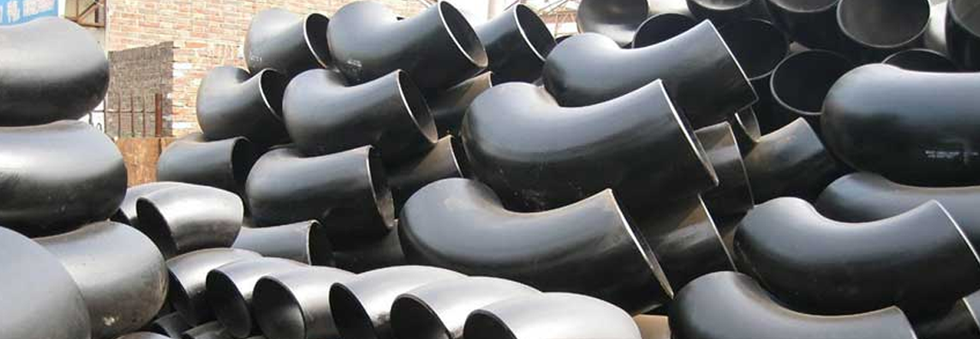The Ultimate Guide to Carbon Steel Fittings: Durability, Applications, and Benefits

The Ultimate Guide to Carbon Steel Fittings: Durability, Applications, and Benefits
In the world of industrial piping and connections, carbon steel fittings stand out as a go-to solution for their unmatched durability, cost-effectiveness, and versatility. From oil and gas pipelines to water systems and chemical processing plants, these fittings are designed to withstand extreme pressures, temperatures, and corrosive environments. In this comprehensive guide, we’ll delve into everything you need to know about carbon steel fittings, including their features, types, applications, and why they remain an industry standard.
What Are Carbon Steel Fittings?
Carbon steel fittings are components made from a robust alloy of carbon and iron, specifically designed to connect sections of pipelines, control flow, and ensure system integrity. Unlike stainless steel or plastic fittings, carbon steel fittings offer superior strength and affordability, making them ideal for heavy-duty industrial applications.
Key Features of Carbon Steel Fittings
- Durability: High tensile strength makes them resistant to deformation under pressure or temperature fluctuations.
- Corrosion Resistance: Treated with coatings like galvanization or epoxy for rust prevention.
- Temperature and Pressure Tolerance: Performs in extreme conditions, from -50°C to 500°C, and pressures exceeding 3000 PSI.
- Cost-Effective: Offers excellent performance at an affordable price point.
- Versatility: Available in numerous shapes, sizes, and configurations.
Types of Carbon Steel Fittings
Choosing the right type of fitting is essential for ensuring a reliable and efficient piping system. Below are the most common types:
- Carbon Steel Elbow Fittings: Used to change the direction of pipelines, available in 45° and 90° angles.
- Carbon Steel Tee Fittings: Create branch lines for fluid or gas distribution.
- Carbon Steel Reducers: Facilitate the connection of pipes with different diameters.
- Carbon Steel Flanges: Secure connections between pipes, valves, and other equipment.
- Carbon Steel Couplings and Adapters: Join two pipes or connect different end types.
- Carbon Steel Caps and Plugs: Close pipeline ends to ensure safety and prevent leaks.
Applications of Carbon Steel Fittings
Carbon steel fittings are indispensable in numerous industries, including:
- Oil and Gas Pipelines: Withstand high pressures during transportation of crude oil, natural gas, and refined products.
- Petrochemical Plants: Handle corrosive chemicals and high-temperature fluids.
- Power Plants: Manage steam, water, and other critical fluids.
- Water Supply Systems: Ensure durability in municipal and industrial distribution pipelines.
- Heavy Machinery and Construction: Integral in hydraulic systems and structural piping.
Advantages of Using Carbon Steel Fittings
- Reliability in Extreme Conditions: Perform well in both high-temperature and sub-zero environments.
- Wide Range of Sizes and Standards: Compatible with global systems through ASTM, ANSI, and API standards.
- Eco-Friendly Option: Carbon steel is recyclable and sustainable.
- Ease of Installation: Quick installation reduces labor costs and downtime.
How to Choose the Right Carbon Steel Fitting
To select the correct fitting, consider these factors:
- Application Needs: Determine requirements for pressure, temperature, and corrosion resistance.
- Material Grade: Common grades include ASTM A105, A234 WPB, and A106.
- Coatings: Galvanized or epoxy-coated fittings are ideal for corrosive environments.
- Size and Dimensions: Match pipe dimensions and ensure adherence to relevant standards.
- Supplier Reputation: Choose a trusted supplier with a proven track record.
Maintenance Tips for Carbon Steel Fittings
- Regular Inspections: Check for signs of wear, corrosion, or leaks periodically.
- Proper Cleaning: Use suitable agents to remove dirt and chemical residues without damaging coatings.
- Protective Coatings: Reapply coatings as needed to extend lifespan.
- Timely Replacement: Replace worn-out fittings to prevent system failures.
When it comes to industrial piping systems, carbon steel fittings offer the perfect balance of strength, durability, and cost-effectiveness. By understanding their features, applications, and maintenance requirements, you can ensure a seamless and efficient operation for your projects.
Ready to enhance your pipeline systems with high-quality carbon steel fittings? Contact Us Today for expert advice or Request a Quote to get started!